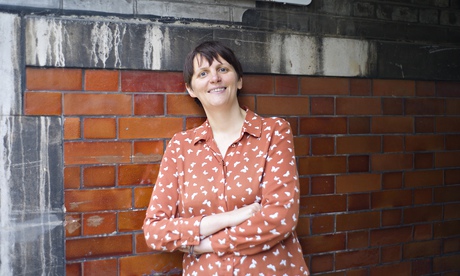
When the editor of Radio 4’s Today bemoans that audiences find difficult foreign stories a turn-off, spare a thought for his counterpart at Radio 1’s Newsbeat, charged with capturing the attention of a generation who “live life through their phone”.
Louisa Compton has been tasked with spearheading the BBC’s switch to digital-first, using video, mobile and online to reach a 15 to 24-year-old audience who are switching off the radio in their droves.
Perhaps the Cookie Monster can help. Compton has hired Ryan Dilley, who was responsible for putting the Sesame Street character on Newsnight – as well as Kirsty Wark’s Thriller dance – along with Anna Doble from Channel 4 News and the Independent’s Felicity Morse as social media producer. “We won’t be having the Cookie Monster on Newsbeat,” says Compton. But she does want people like Dilley to “rip up the rulebook” and find new ways, including animated short films, of bringing audiences to Newsbeat, a strategy of “listen, watch, share” that echoes that of Radio 1 controller, Ben Cooper.
“We are looking at ideas for the general election that involve telling some of the stories through a series of games, that kind of thing,” says Compton. “Newsbeat really should be pushing at the boundaries in a way that the rest of BBC News can’t necessarily do.”
Compton’s 15-minute lunchtime and teatime bulletins have a combined weekly reach of around 3.3 million listeners (compared to an overall Radio 1 audience of just under 11 million). More 15 to 24-year-olds (34% of them) get their news from Newsbeat than from any other BBC TV or radio outlet. Compton says it’s a myth that young people are not interested in news; the challenge is how to reach them.
Resources have been switched from the Newsbeat radio programme (“still very important”) to online and social media, with less polished, “super-produced” content and more immersive videos to reflect what its audience watches on YouTube. As well as binning the rules governing traditional video news packages, Compton has cut the typical number of items on Newsbeat from nine to three, telling stories more creatively and packing them with information. “We know our audience is more excited by news and consumes more news than any other generation,” she says. “When I was at school and wanted to find out what was going on in the world, I had to wait until the 9 O’Clock News. Now they live their life through their phones and news is constantly reaching them and they are empowered to find out more. The world is so much smaller — they are talking on social media to people on the other side of the world.”
Described by the BBC’s then head of news programmes Ceri Thomas as “one of the outstanding journalists of her generation in the BBC”, Compton took charge of Newsbeat in April this year. She was previously daytime editor of Radio 5 Live, overseeing a line-up that included Victoria Derbyshire (a show which she also produced), Richard Bacon and Shelagh Fogarty.
Bacon describes her as someone who “cares about presenters more than she does management. She understands BBC politics at the same time as being able to stand outside it”.
Compton took over a newsroom that had been riven by complaints of bullying against Newsbeat’s former editor Rod McKenzie, who denied the accusations and was moved to a new role within the BBC. “I started a year after Rod left,” says Compton. “I took over a brilliant team and my message to them has been about moving forward. Rod left a really strong heritage of original journalism.”
The programme also faced criticism that it was overstaffed after a report by commercial radio executive John Myers three years ago revealed it had 52 full-time staff. Now it has around 30, a handful fewer than Today, but is not expected to suffer further as part of the ongoing BBC News cuts. “I came here and thought I’ve got quite a big team, but once you see what people are doing and the content we are producing, it does feel quite tight,” she says.
Compton, who turned down the offer of a role on BBC2’s Newsnight to take over at Newsbeat, also has her eye on creating more content for BBC3, including short form documentaries, four years after the then Radio 1 controller Andy Parfitt floated the idea of a monthly “Panorama for young people” on the station. A Radio 1 Scottish referendum debate hosted by Edith Bowman was well received and listeners can expect more of the same in the run-up to next year’s general election. A global, one-minute take on Newsbeat is also being developed for the World Service (but without Compton’s involvement).
But Compton’s plans for a “radical” relaunch of Newsbeat’s website later this year will not now happen until 2015. “There are a million hoops to go through,” she says. “It was probably my over-ambition.”
With her team just finished a two month training programme and a two week residential film making course, Compton says they are “genuinely the most multi-skilled team in BBC News at the moment”. Almost the entire team can write, present, report, and shoot and edit their own films.
“One of the things we want to be doing is leading the way in innovation for the rest of BBC News,” she adds. “I think it’s inevitable that other parts will have to follow suit.”

